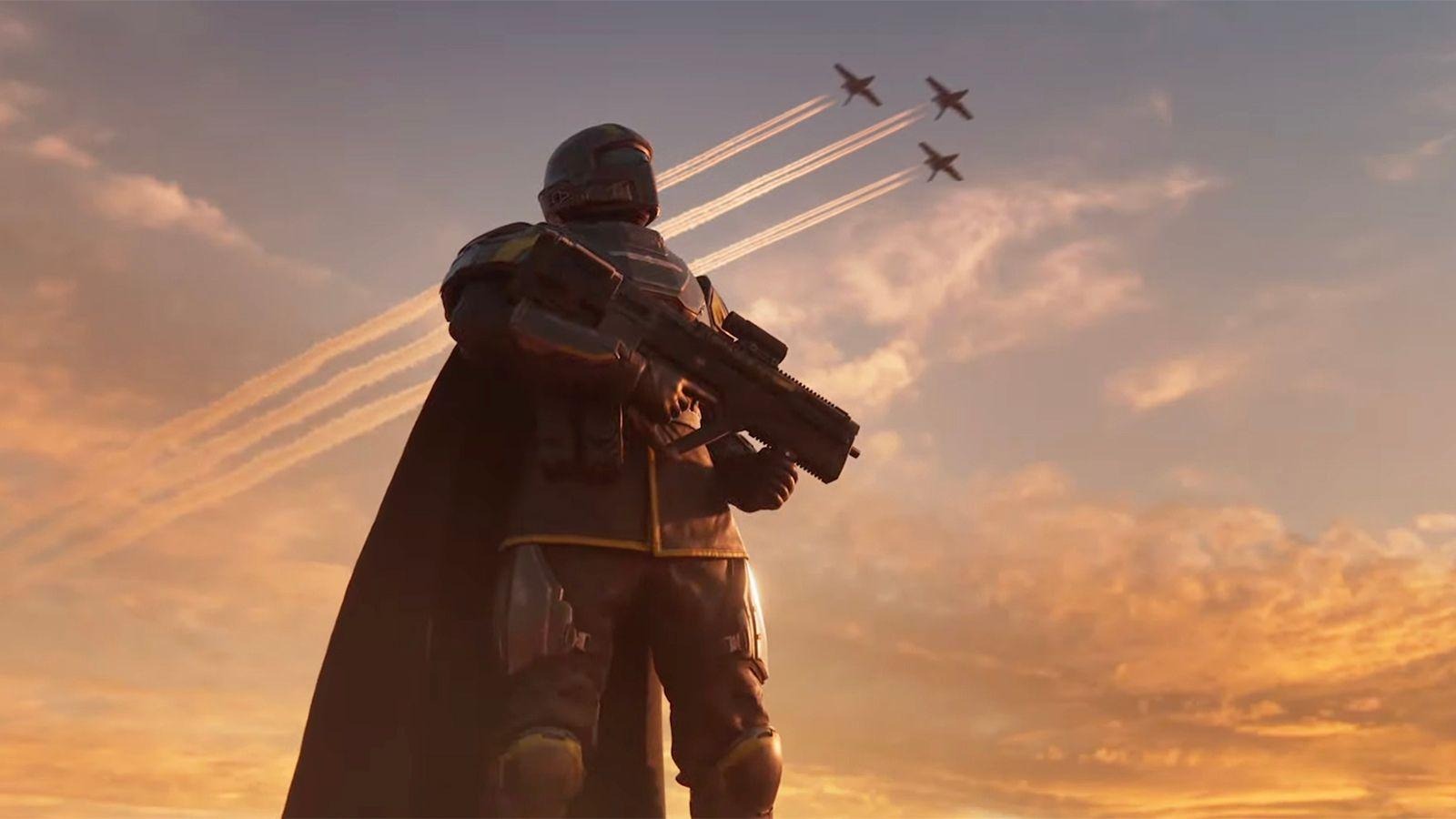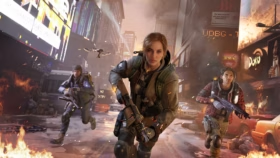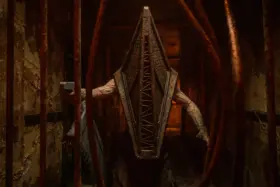The year is 2025, and the live service graveyard is getting crowded. For every long-running success, there are a dozen expensive tombstones for games that demanded our daily attention but gave us a second job in return. High-profile failures like the ‘disappointing’ Suicide Squad: Kill the Justice League and Concord have left players cynical and tired of the whole model.
The problem, more often than not, is the static, predictable roadmap. For years, the industry standard has been to launch a game with a glossy timeline promising future content that often feels hollow. This approach uses psychological tricks like Fear Of Missing Out (FOMO) to keep you logging in for repetitive daily challenges and seasonal grinds, treating you less like a player and more like a user to be milked.
Then, a new champion for Managed Democracy dropped in: Helldivers 2. Its massive success isn’t just a fluke; it’s a radical rethinking of what a live service game can be. Instead of a rigid corporate roadmap, developer Arrowhead Game Studios gave us a living, breathing war—one conducted not by algorithms, but by a human hand.
The Man Behind the Curtain: Meet Joel
Early in the game’s life, Arrowhead’s CEO revealed a secret that changed everything: the entire Galactic War was being steered by a single developer named Joel, whose official title is “Game Master”. Like a Dungeon Master in a game of D&D, Joel’s job is to react to what players are doing in real-time, creating a dynamic, ever-evolving story on a galactic scale.
The community latched onto this idea immediately. Suddenly, every surprise enemy attack or timely delivery of new gear was attributed to the will of Joel. He became a character in the game’s lore, a mythical figure who was either a benevolent god or a cruel tyrant. Memes flooded social media, casting Joel as the ultimate puppet master.
This is the secret ingredient. Unlike fighting a faceless algorithm, fighting against Joel feels personal. When the Automatons suddenly got reinforcements because players were liberating a planet too quickly, it wasn’t a random difficulty tweak; it was a deliberate move by a known adversary.
This creates a powerful “us vs. them” story that unites the entire player base. They aren’t just fighting bugs and bots; they’re fighting Joel, and they love him for it. While the role has since grown to a full team, the concept of a human “benevolent dictator” remains, giving the community a focal point for their collective storytelling.
From Pixels to Propaganda: A Community-Authored War
The power of this model shines in the player-created stories that have become official canon.
The Legend of Malevelon Creek
Early in the war, a gloomy jungle planet deep in Automaton territory became infamous for its brutal difficulty. Players quickly nicknamed it “Space Vietnam,” and a legend was born. The r/Helldivers subreddit was flooded with fan-made propaganda posters and stories about the “Creek Crawlers” holding a hopeless front.
When the planet was eventually lost, the community genuinely mourned the “Massacre of Malevelon Creek”. Arrowhead was watching. When players finally liberated the planet, their victory was officially recognized. April 3rd was declared “Malevelon Creek Memorial Day,” and every player was awarded a special commemorative cape. This single act proved that their stories, their sacrifices, and their memes mattered.
Operation Swift Disassembly & The Mech Reward
The liberation of Tien Kwan was another masterclass. A Major Order was issued: liberate the planet where all of Super Earth’s powerful Exosuit mechs were made. The community rallied. The moment the planet was liberated, Arrowhead didn’t just announce a future release date; they unlocked the Exosuit stratagem for every single player, effective immediately. The reward wasn’t just handed out; it was earned. This transforms playing the game from a simple grind into a meaningful contribution to a larger story, creating a powerful sense of “I was there” that no battle pass could ever replicate.
The Tyranny of the Timeline
This dynamic approach stands in stark contrast to the rigid roadmaps that define most live service games. A perfect example is the community reaction to the 2025 roadmap for Diablo 4. Instead of excitement, the announcement was met with widespread disappointment. Players criticized the plan for its reliance on recycled seasonal mechanics and a lack of truly new content. The roadmap, meant to build hype, instead felt like a confirmation that the game was stuck in a creative rut.
Roadmaps kill the magic of surprise. Players know exactly what’s coming, turning the game into a predictable checklist. This is the “engagement trap,” where the game is designed to be a habit, not an experience. In Helldivers 2, players log in because something unexpected and genuinely exciting might be happening right now.
| Feature | The Static Roadmap Model (e.g., Diablo 4) | The “Dungeon Master” Model (Helldivers 2) |
| Narrative Delivery | Pre-scripted, delivered in seasonal chunks. Known months in advance. | Dynamic, reactive, and unpredictable. Unfolds in real-time. |
| Player Agency | Passive. Players consume a pre-determined story. | Active. Player actions (wins/losses) directly influence the narrative. |
| Major Events | Scheduled on a public calendar. Predictable. | Can happen at any time, often in response to player activity. Unpredictable. |
| Primary Motivator | FOMO. Grind for the next scheduled content drop. | Community. Participate in the ongoing story and shared history. |
| Developer Role | Content Provider. | Storyteller / Dungeon Master. |
| Community Reaction | Often disappointment, fatigue, feeling of a “second job.” | Excitement, meme creation, emergent lore, sense of collective purpose. |
A Healthier Model for a Sick Industry
The “Dungeon Master” model isn’t just more fun; it’s a more sustainable approach for an industry plagued by a “boom and bust” cycle that has led to tens of thousands of layoffs. Instead of betting the company on a massive launch, this model allows a game to grow organically with its community.
The Game Master team can create huge narrative impact through smaller, agile interventions, a new Major Order, or a surprise enemy offensive, freeing up the rest of the team to work on larger updates without the crushing pressure of a relentless content calendar.
This approach builds a level of trust that is almost unheard of today. Players who have been burned by the “ship today, fix tomorrow” mentality see developers actively playing alongside them. It’s a powerful counterargument to the disposable nature of many live service games, which, as the “Stop Killing Games” movement highlights, can be erased forever once they stop being profitable.
The success of Helldivers 2 proves that players are starving for something more than a predictable grind. The “benevolent dictator” model has transformed a live service game into a collaborative storytelling epic. The Galactic War has sent a clear message to the industry: the old way is failing. A new model, built on surprise, collaboration, and a little bit of managed chaos, has proven to be a wild success. The only question is whether other studios will be brave enough to answer the call.






